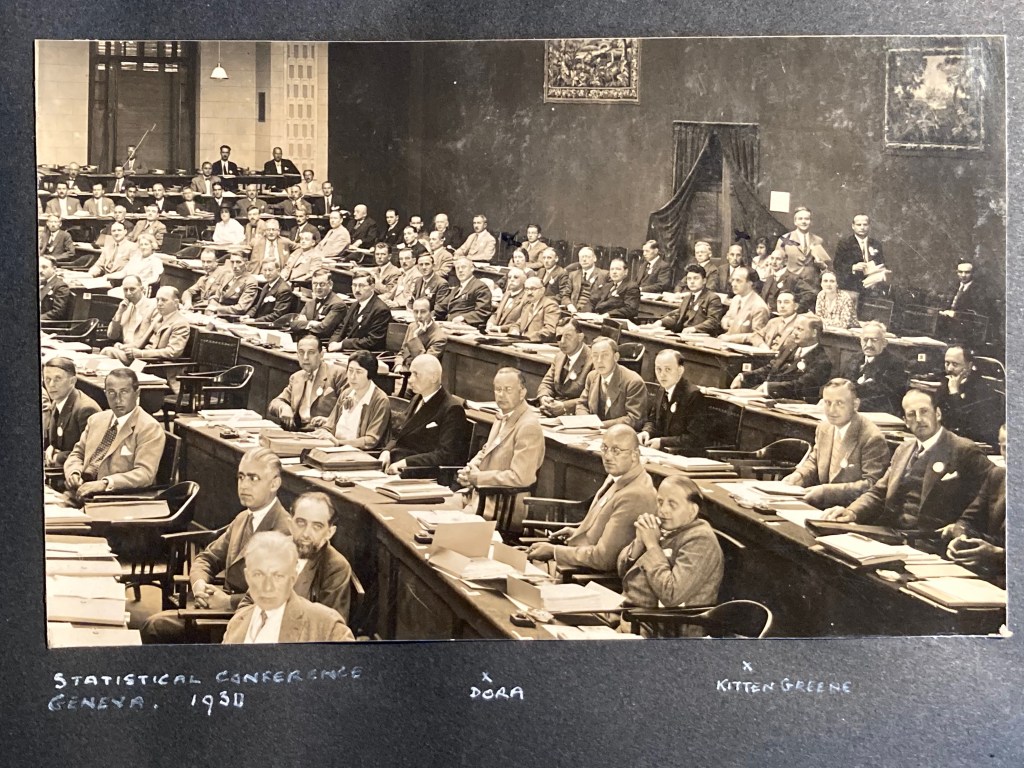The theme for the UN International Women’s Day 2024 is Invest in Women: Accelerate Progress. Women do three times as much unpaid care work as men and, if they were paid for it, it would account for 40% of GDP! And that’s before we even get started on the gender pay gap or the fact that 340 million women around the world live in extreme poverty.
This IWD I am thinking particularly about women in Gaza, grieving, trying to care for loved ones and orphaned children, and coping with pregnancy and birth without healthcare, clean water or food. The UN estimate that 700,000 women in Gaza are having their periods without access to sanitary products. Those in power must end the suffering now.

Dora Metcalf invested in women throughout her career. From the early days of mechanical accounting in the 1910s through to the dawn of the electronic computing era in the 1950s, she employed a mainly female staff. It was the norm for women to operate the machines – in fact the women were known as computers – and Dora was renowned for employing anyone, regardless of race or religion. She also employed women mathematicians and, in the 1950s, women programmers. Her membership of the Women’s Provisional Club gave her connection to many other pioneering and campaigning women, from the 1930s to the 1960s.
The forerunner of the United Nations was the League of Nations. I knew that Dora had attended a conference in Geneva in 1930, hosted by the League of Nations, but I have only just found out the details. It was a conference convened by the International Management Institute on the new science of Budgetary Control in business. One of the pioneers in the field was James McKinsey, who founded McKinsey Consulting in 1926, and he was due to lead a discussion on “the budget as an aid to determination of policy,” but did not attend at the last moment. It seems incredible to us now that budgeting had only just become a thing!
Budgeting was defined as “not merely control; it is not merely forecasting; it is an exact and rigourous analysis of the past, and the probable and desired future experience with a view to substituting considered intention for opportunism in management.”

Dora’s cousin, Everard Greene, (known in the family as Kitten, he is seated under the white square in the pic) presented a paper on “The relationship of tabulating machines to budgetary control.” These were two innovations coming together. He argues that prior to the First World War there was a long period when demand and supply were in balance and so budgetary control was unnecessary. The war disrupted the system and afterwards some industries faced an excess of supply over demand, while others faced the opposite.
This prompted the development by the Americans of the concept of budgetary control. Tabulating machines had been invented in the USA in the 1880s, principally to mechanise the census. As with all innovations, there was considerable resistance to these “new fangled business ideas” and this was inhibiting growth for both Everard at BTM and Dora’s CASS. Everard concludes:
“It seems obvious that those who are interested in budgetary control should investigate the possibilities of tabulating machines as a means of putting their ideas into effect, and in turn, those who are marketing tabulating machines should impress on their market the value of budgetary control.”
Dora was one of 200 delegates at the conference, but the only one representing Ireland and one of a handful of women present.
